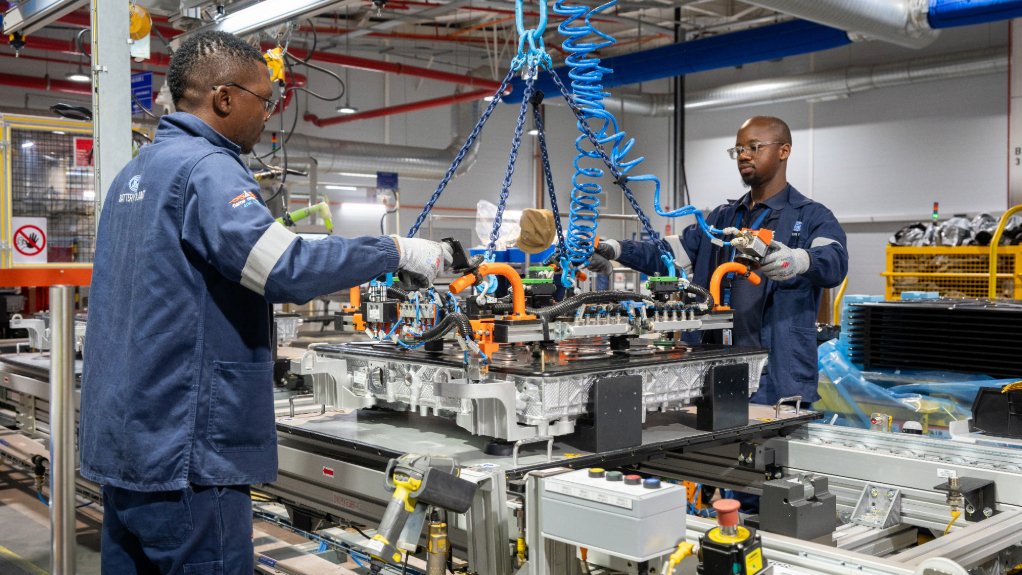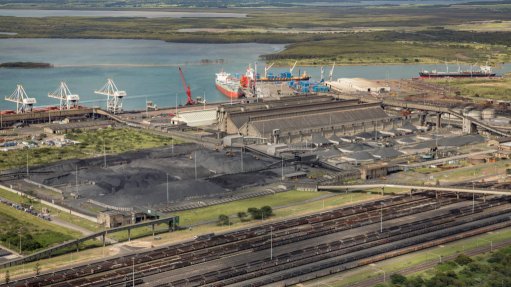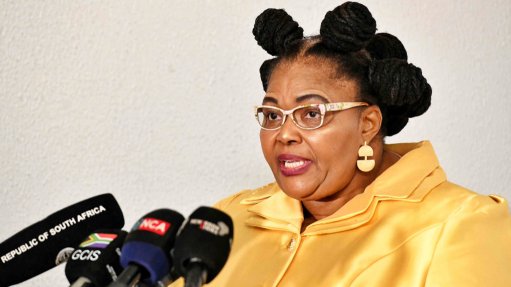Automotive sector decarbonisation opportunities numerous – panel
With the implementation of the EU’s Carbon Border Adjustment Mechanism looming, new energy vehicle (NEV) policies intensifying and the responsible sourcing imperative intenifiying, automotive manufacturers are encouraged to view decarbonisation as a strategic advantage on a technical and operational level.
While most of South Africa’s original-equipment manufacturers have started adapting to new energy needs, more rapid shifts to NEV production and cleaner industrial processes are hampered by the country’s carbon-intensive energy system, a lack of guidance and insufficient data gathering, said consultancy BMA director Meghan King during a panel comprising automotive experts at the Manufacturing Indaba, on July 16.
For electric vehicles (EV) consultant Carel Snyman, another challenge to South Africa’s decarbonisation in the automotive sector is the lack of incentives to buy EVs, while more Chinese brands are entering the market, which makes the market more saturated by the time more widespread EV incentives are adopted locally.
Energy-as-a-service company Energy Partners business development manager Kevin Coldrey said automakers could start their decarbonisation journey with renewable-energy installations and by upgrading industrial processes.
The investments could also span cooling systems, he said, citing an example whereby a manufacturer invested R300-million in its cooling system which resulted in a 40% reduction in Scope 1 emissions.
According to Coldrey, companies have various options available to reach 100% renewable-energy penetration, including through a combination of rooftop solar, batteries and wheeling, depending on their load profiles.
Automotive Industry Development Centre (AIDC) CEO Andile Africa mentioned that many local manufacturers had shifted to produce hybrid models rather than full EVs, which helped to lower emissions and catered for individuals interested in NEVs.
He said the South African automotive industry had grown to have 39% of components produced locally and that it would take time for the supply base for EVs to be developed in the country, if quality and costs were to be maintained over the long term.
Commenting on the Chinese import phenomenon, Africa confirmed that the AIDC was conducting an impact study on Chinese imports and to what extent it was leading to de-industrialisation of the automotive industry.
For more consumers to purchase EVs and thereby encourage manufacturers to produce cleaner energy vehicles using updated industrial processes, Africa proposed more vehicle and solar financing packages needed to be established for consumers to achieve early paybacks on the investments made for these vehicles.
Southern African-German Chamber of Commerce and Industry project manager Stef van der Walt mentioned that EVs and solar PV generation would, with more scale and development, become increasingly efficient and cheaper to acquire and operate.
“Just like internal combustion engine (ICE) vehicles have become more efficient over the last 130 years, so too will NEV technology.”
In respect of South Africa’s carbon intensive electricity generation system, EV services provider Everlectric CEO Ndia Magadagela said not only was this poised to improve in coming years,with Eskom embracing more renewable energy, but the lifetime emissions of EVs powered by a coal-fired grid was still lower than that of ICE vehicles.
She said there was a future for EVs in South Africa, especially if there was more strategic policy alignment and high import tariffs for EVs were done away with. Magadagela was confident that South Africa could become a strategic upstream player in the battery supply chain, starting with the “low hanging fruit” conversion of delivery fleets and public transport systems to electric, for example.
The experts agreed that South African automakers were already frontrunners in respect of decarbonisation, but that there was more opportunity for NEV and renewable-energy transformation – “the challenges are not insurmountable”.
Article Enquiry
Email Article
Save Article
Feedback
To advertise email advertising@creamermedia.co.za or click here
Announcements
What's On
Subscribe to improve your user experience...
Option 1 (equivalent of R125 a month):
Receive a weekly copy of Creamer Media's Engineering News & Mining Weekly magazine
(print copy for those in South Africa and e-magazine for those outside of South Africa)
Receive daily email newsletters
Access to full search results
Access archive of magazine back copies
Access to Projects in Progress
Access to ONE Research Report of your choice in PDF format
Option 2 (equivalent of R375 a month):
All benefits from Option 1
PLUS
Access to Creamer Media's Research Channel Africa for ALL Research Reports, in PDF format, on various industrial and mining sectors
including Electricity; Water; Energy Transition; Hydrogen; Roads, Rail and Ports; Coal; Gold; Platinum; Battery Metals; etc.
Already a subscriber?
Forgotten your password?
Receive weekly copy of Creamer Media's Engineering News & Mining Weekly magazine (print copy for those in South Africa and e-magazine for those outside of South Africa)
➕
Recieve daily email newsletters
➕
Access to full search results
➕
Access archive of magazine back copies
➕
Access to Projects in Progress
➕
Access to ONE Research Report of your choice in PDF format
RESEARCH CHANNEL AFRICA
R4500 (equivalent of R375 a month)
SUBSCRIBEAll benefits from Option 1
➕
Access to Creamer Media's Research Channel Africa for ALL Research Reports on various industrial and mining sectors, in PDF format, including on:
Electricity
➕
Water
➕
Energy Transition
➕
Hydrogen
➕
Roads, Rail and Ports
➕
Coal
➕
Gold
➕
Platinum
➕
Battery Metals
➕
etc.
Receive all benefits from Option 1 or Option 2 delivered to numerous people at your company
➕
Multiple User names and Passwords for simultaneous log-ins
➕
Intranet integration access to all in your organisation





















